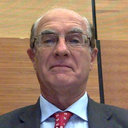Do Parkinson's disease patients disclose their adverse events spontaneously?
Клучни зборови
Апстракт
BACKGROUND
Underreporting of adverse drug reactions is common but has been rarely studied in Parkinson's disease (PD).
OBJECTIVE
To compare the prevalence of adverse events (AEs) in relation to antiparkinsonian drugs in PD patients using two different data collection methods: patient's spontaneous reporting versus a predefined investigator-driven structured interview. Secondary objectives were to assess factors related to spontaneous reporting and to compare the rate of AE reporting in PD patients with that of a group of non-parkinsonian post-stroke patients.
METHODS
Cross-sectional study.
METHODS
Ambulatory, cognitively intact PD or post-stroke outpatients.
METHODS
None.
METHODS
Patients were first asked by means of an an open question to disclose any unpleasant effects in connection with their current medications that had occurred during the previous week. Afterwards, a predefined questionnaire listing the most common AEs known to be related to antiparkinsonian drugs was used to question the same patients in a systematic manner about the presence of any AE during the same week. Chronological and semiological criteria were used to classify the reported AEs as "unrelated" or "possibly/plausibly related" to the antiparkinsonian treatment.
RESULTS
A total of 203 PD and 52 post-stroke patients of comparable age and sex were recruited. Eighty-five PD and five post-stroke patients reported spontaneously at least one AE (42 vs. 10%, p < 0.01), while 203 PD and 47 post-stroke patients reported at least one AE following the structured questionnaire (100 vs. 90%, p < 0.001). In PD patients, there were a total of 112 spontaneously reported AEs as compared with 1,574 according to the structured questionnaire (7%). Spontaneous disclosure of AEs was associated with experiencing >2 AEs [OR = 1.2 (1.1-3.2)], logistic regression). Seventy-four percent of PD patients had ≥1 AE possibly/plausibly related to antiparkinsonian drugs.
CONCLUSIONS
Results showed that only 7% of AEs were reported spontaneously by patients, thus underscoring the importance of systematically asking about AEs in PD patients.


